Timing Your Social Security [Ep. 5]
July 7th, 2025
3 min read

Listen on
View the full transcription of this episode here.
About This Episode
Timing Social Security is one of the most important—and misunderstood—decisions in retirement planning. In this episode of GDS Unplugged, Glen and Robert unpack the math, myths, and mindset behind when to claim your benefits. From break-even ages to Medicare penalties and spousal strategies, this episode is packed with insights to help you make the most of your Social Security.
Whether you're nearing retirement or just planning ahead, this episode will help you understand how to align your Social Security decisions with your financial goals.
Why Timing Matters
We live in a world of probabilities. While the last decade may have been one of the best in stock market history, that doesn’t guarantee the next one will be. Glen and Robert challenge listeners to weigh the certainty of an 8% annual increase (plus COLA) against the hope of market returns. If you don’t need the income now, why not let it grow?
What Is Full Retirement Age (FRA)?
FRA is the age at which you’re eligible to receive 100% of your Social Security benefit. For most people born after 1960, that’s age 67. Taking benefits earlier—say at 62—can reduce your monthly payout by about 30% for life. On the other hand, delaying until age 70 can boost your benefit by 8% per year, not including cost-of-living adjustments.
Key Factors to Consider
- Health & Life Expectancy: If you’re in good health and have longevity in your family, waiting may pay off.
- Income Needs: If you’re still working and don’t need the income, delaying can help you avoid unnecessary taxes and IRMAA penalties.
- Spousal Benefits: Even if one spouse didn’t work enough to qualify, they may still be eligible for up to 50% of the other’s Social Security benefit.
- Break-Even Age: Many assume they need to live to 85 to make delaying worth it. In reality, the break-even point is often closer to 78–80 years of age.
Common Pitfalls
- Not Doing the Math: Relying on hearsay or headlines instead of personalized planning.
- Ignoring IRMAA: Taking Social Security too early while earning a high income can trigger higher Medicare premiums.
- Overestimating Market Returns: Betting on speculative investments instead of taking the guaranteed Social Security growth.
Real-Life Scenarios
Glen and Robert walk through examples like a 64-year-old still earning $150K, and a stay-at-home spouse who qualifies for benefits through their partner. These case studies highlight how nuanced the decision can be—and why a one-size-fits-all approach doesn’t work.
Don’t Leave Money on the Table
Social Security isn’t just a government benefit—it’s a key part of your retirement income strategy. Understanding when and how to claim it can make a significant difference in your long-term financial health.
Resources
- Connect with Glen Smith and Robert Casey on LinkedIn.
- Contact GDS Wealth Management for a complimentary financial consultation.
- Submit your questions to Glen and Robert’s GDS Unplugged mailbag by emailing gds@gdswealth.com.
Why Listen?
This episode is packed with practical insights and real-life scenarios to help you make informed decisions about when and how to claim Social Security. Whether you're approaching retirement, still working, or planning for a spouse, Glen and Robert break down the math, the myths, and the must-knows. Tune in to gain clarity on break-even ages, Medicare implications, spousal benefits, and how to avoid costly mistakes. Don’t miss this opportunity to take control of your retirement strategy with confidence.
GDS Wealth Management (“GDS”) is an SEC Registered Investment Adviser. Registration as an investment adviser does not imply a certain level of skill or training. The information presented in this podcast is intended for general informational purposes only and does not constitute investment, legal, tax, or other professional advice. Discussions in this episode about Social Security benefits, Cost-of-Living Adjustments (COLA), Medicare, and Income-Related Monthly Adjustment Amounts (IRMAA) are based on current laws, thresholds, and benefit formulas as of the recording date. These government programs are complex and subject to change. Any references to stock market performance, historical trends, or investment outcomes are provided for illustrative purposes only. Past performance does not guarantee future results. All investing involves risk, including the potential loss of principal. The views and opinions reflect the authors as of the publication date and are subject to change without notice. This podcast does not guarantee any specific financial outcome or result from the implementation of any strategies discussed. For more information about GDS Wealth Management, including a description of services, fees, and important disclosures, please visit https://www.gdswealth.com.
At GDS Wealth Management, we aim to provide clients with highly personalized and attentive financial advice, coaching, and administrative support. Our experienced team of local financial planners is proud to offer the families and individuals we serve both the credentialed guidance and expertise needed to help you reach your lifelong financial goals.
Topics:








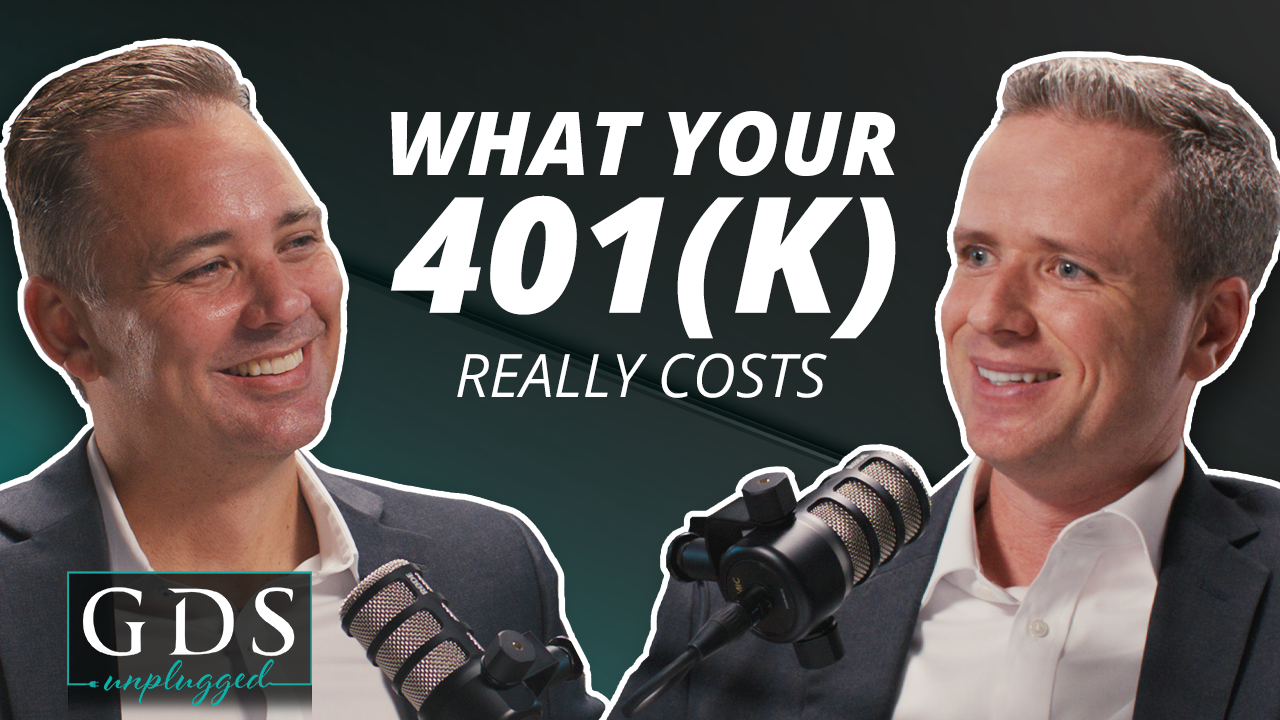

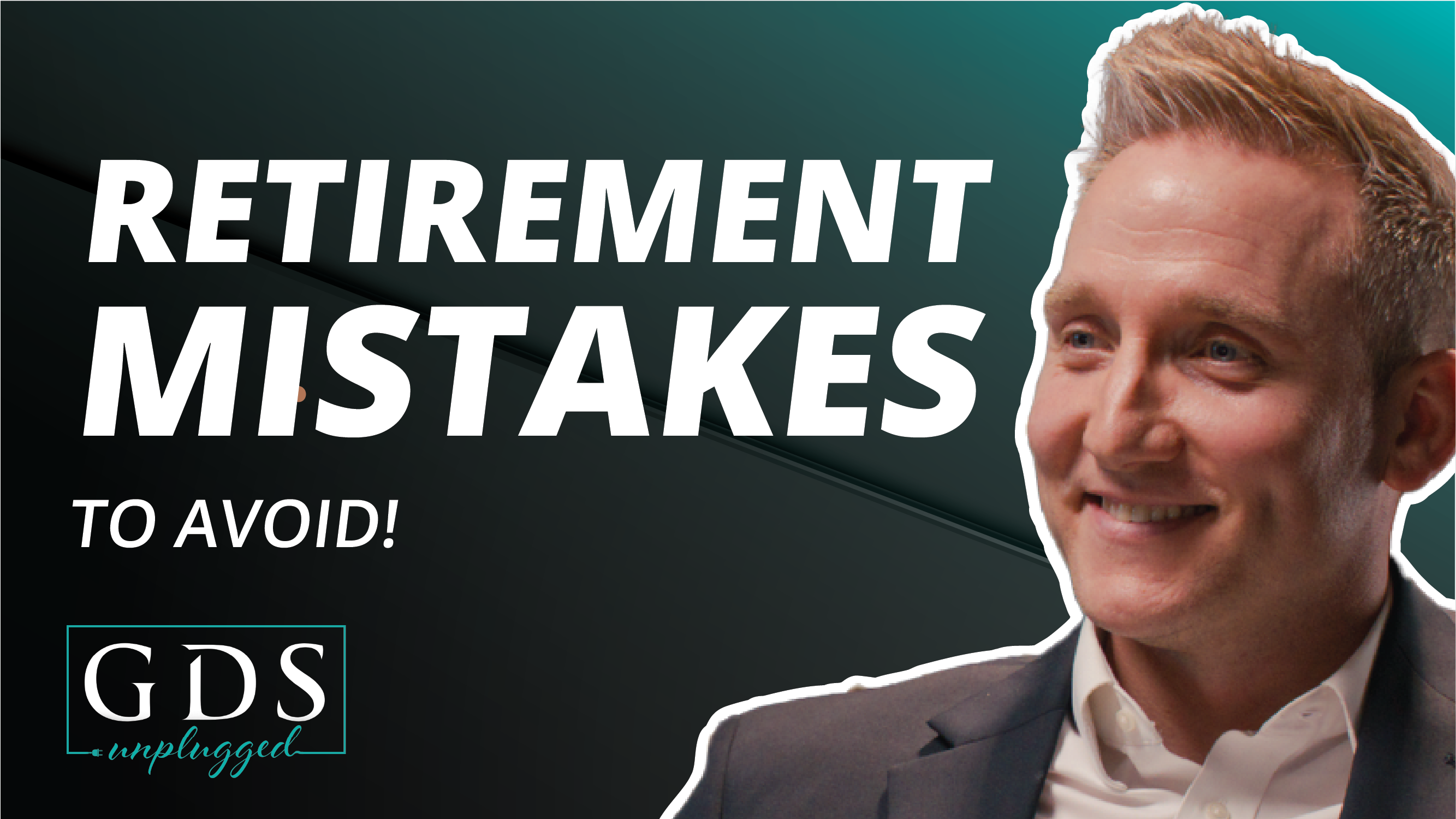

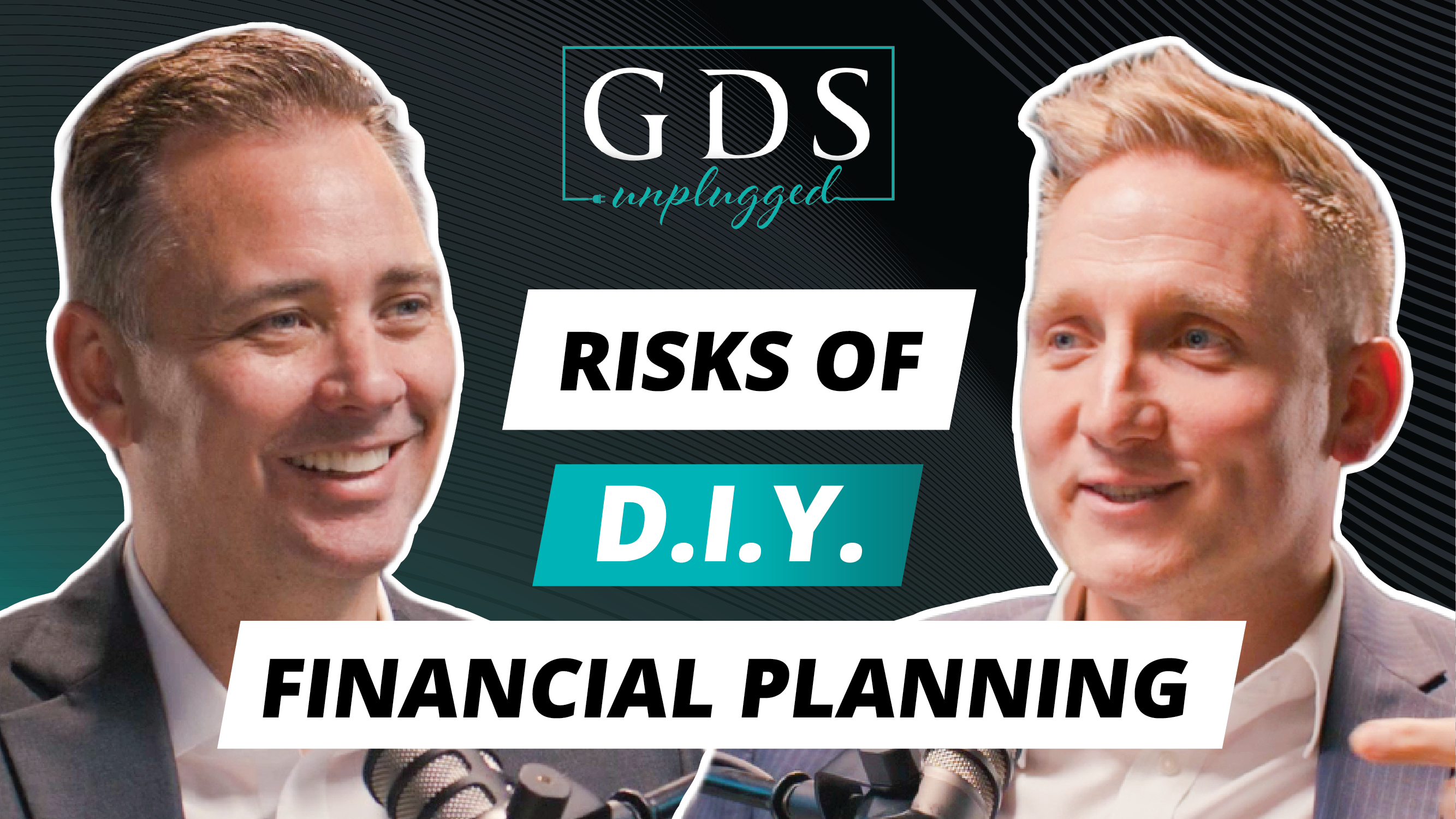


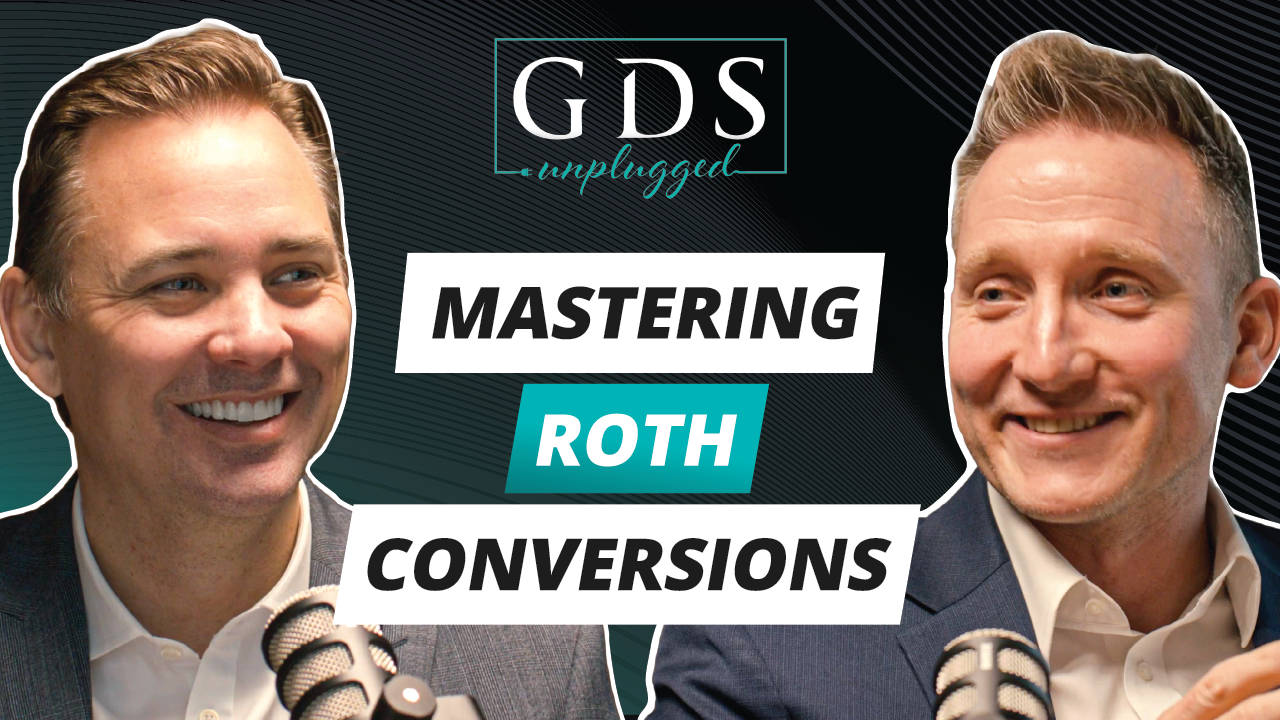
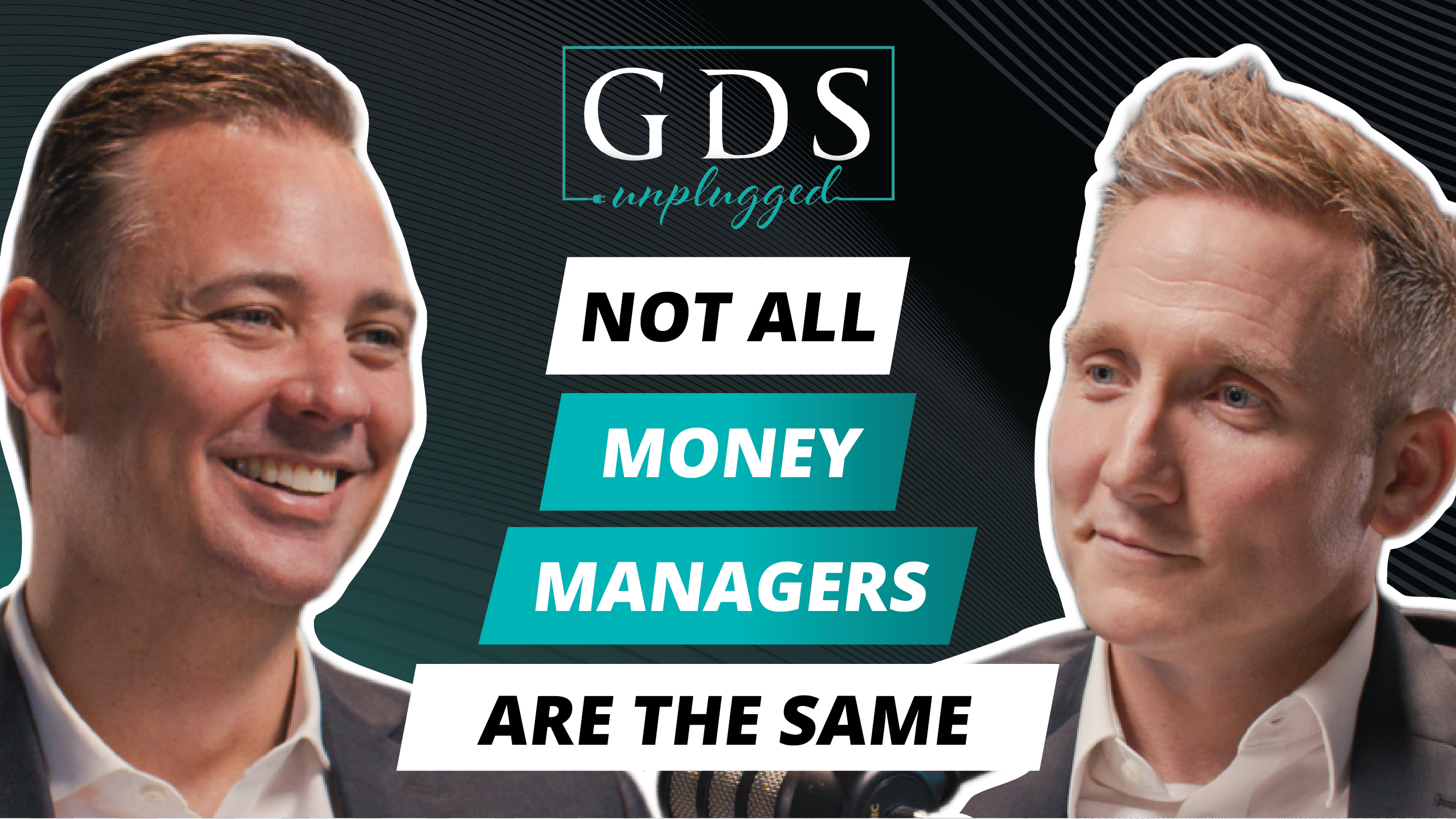
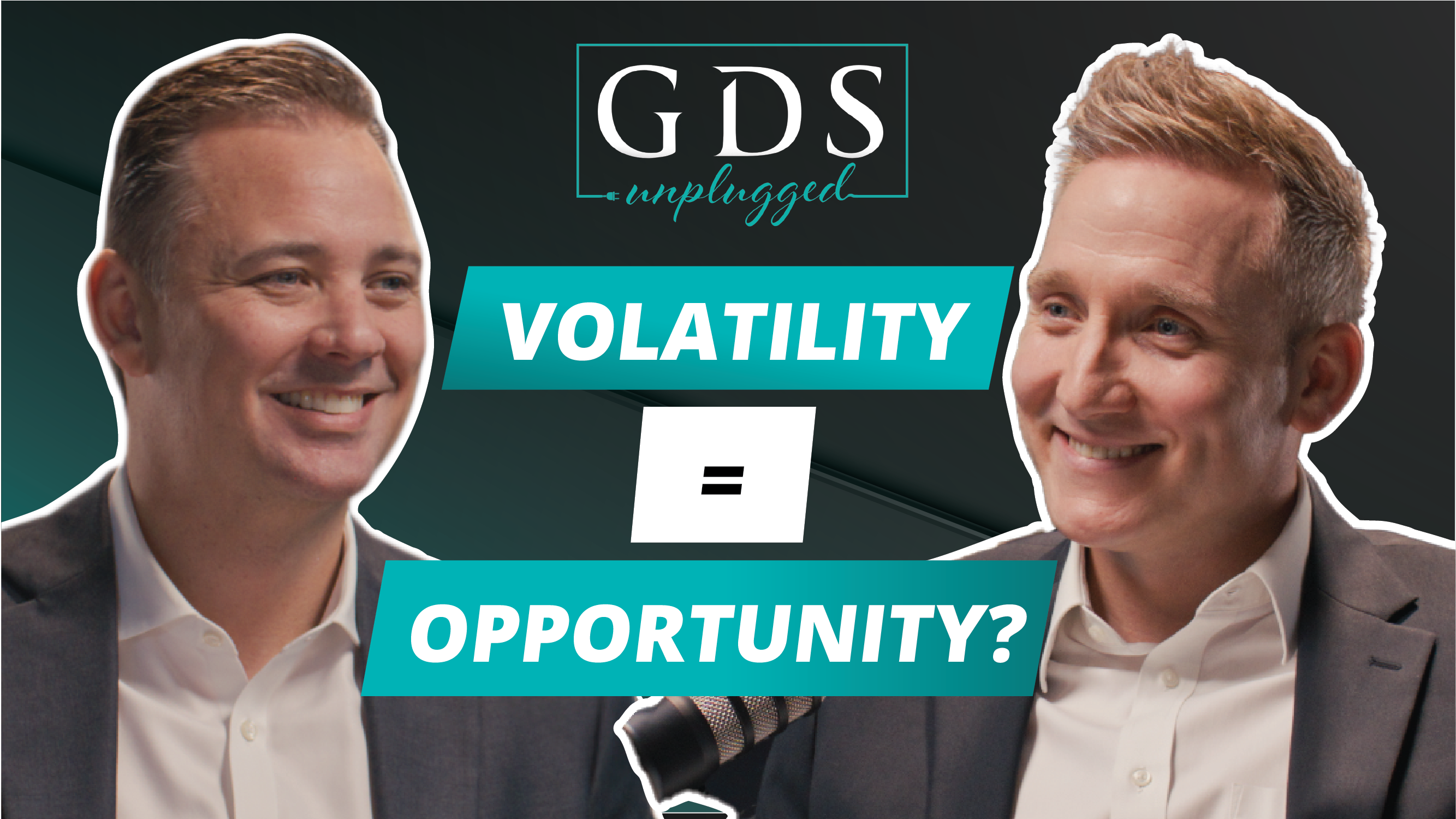


.png?width=2667&height=1500&name=682e02131511aa408dae6600_Unplugged_Ep4_0525-01%20(1).png)